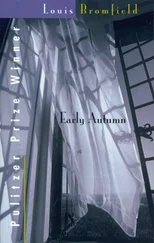I. Parker - Death on an Autumn River
Здесь есть возможность читать онлайн «I. Parker - Death on an Autumn River» весь текст электронной книги совершенно бесплатно (целиком полную версию без сокращений). В некоторых случаях можно слушать аудио, скачать через торрент в формате fb2 и присутствует краткое содержание. Жанр: Исторический детектив, на английском языке. Описание произведения, (предисловие) а так же отзывы посетителей доступны на портале библиотеки ЛибКат.
- Название:Death on an Autumn River
- Автор:
- Жанр:
- Год:неизвестен
- ISBN:нет данных
- Рейтинг книги:3 / 5. Голосов: 1
-
Избранное:Добавить в избранное
- Отзывы:
-
Ваша оценка:
- 60
- 1
- 2
- 3
- 4
- 5
Death on an Autumn River: краткое содержание, описание и аннотация
Предлагаем к чтению аннотацию, описание, краткое содержание или предисловие (зависит от того, что написал сам автор книги «Death on an Autumn River»). Если вы не нашли необходимую информацию о книге — напишите в комментариях, мы постараемся отыскать её.
Death on an Autumn River — читать онлайн бесплатно полную книгу (весь текст) целиком
Ниже представлен текст книги, разбитый по страницам. Система сохранения места последней прочитанной страницы, позволяет с удобством читать онлайн бесплатно книгу «Death on an Autumn River», без необходимости каждый раз заново искать на чём Вы остановились. Поставьте закладку, и сможете в любой момент перейти на страницу, на которой закончили чтение.
Интервал:
Закладка:
That might have happened, but Akitada did not think so. Still, he nodded. “I don’t want to keep you. Thank you again. You’d best make some explanation to the governor and the others. I’ll be staying in the government hostelry.”
Akitada watched Watamaro hurry back inside before setting out for the government accommodations. He still did not know anything. Before him lay the night, and the vast Inland Sea shimmered like a tarnished silver mirror in the moonlight.
Chapter Ten
The hostel for government personnel was near the prefecture. Akitada walked in, found a man dozing over his guestbook, and clapped his hands sharply. The man was hugely fat and slow to wake or move. Eventually, he raised a round and greasy face to Akitada, blinked eyes that sat deep in the flesh of his face, and asked, “What do you want?”
This did not promise well, and the accommodations lived up to the promise. When Akitada had communicated his wish for a room and handed over his government chit to prove that he was entitled to it, the fat man pushed the guest ledger his way and rubbed water on a mangy bit of ink stone. Akitada used the worn-out brush to write his name under that day’s date. He saw that he was joining only two other guests. The fat man shouted, and a skinny little girl appeared.
“The second eastern chamber,” he growled, and the little girl lit a small oil lamp and headed for a hallway leading off to the right.
“You’ll need to send a servant for two bags,” Akitada said. “They are at Director Nakahara’s house. My name is Sugawara, but there will be two bags. One is mine, the other belongs to my clerk Sadenari.” The manager grunted and Akitada followed the little girl.
She looked to be about eight or nine years old and should have been skipping along. Instead, she crept forward silently until she reached a door. This she opened and stepped aside for him to enter.
The room was small and mean, the rafters bare to the roof as they had been in the Flying Crane, but it had walls and a wooden floor. Solid sliding doors led to the outside but were closed. Akitada went to open them and found a strip of veranda without railing. The moon shone fitfully among moving clouds but showed a narrow space of weeds and beyond it a wooden fence in poor repair. Roofs of other buildings blocked the rest of the view.
He turned back to look around. The little girl had followed him in and had lit another oil lamp. Now she was struggling with a roll of bedding almost larger than she was. He went to help her. The bedding was plain cotton, worn, but clean. Akitada noted that the room contained also a small writing desk, a water container, and a small brazier. With the bedding spread out, there was little space left.
It would do until he could return to the capital.
The little girl stood near the door and watched him with lackluster eyes that seemed too large for her narrow face. Akitada became uncomfortably aware that he was without money. He said gently, “Thank you, my dear. You shall have a copper later.”
She bowed and crept out, closing the door behind her.
Akitada stepped onto the narrow strip of veranda and stared at the tall fence a few feet away. He had stormed out of the meeting in Nakahara’s office without wasting much thought on his immediate future. Now he could do nothing until the inn’s servant came with his bags. His own contained a small amount of money, though hardly enough for an extended stay. At least he had a roof over his head, and that expense was covered by the government.
A cricket’s strident song broke into his thoughts. The night was hot and oppressive, but the autumn crickets signaled cooler days. Sadness crept into his heart. As always, autumn brought sadness.
But his greatest loss had come to him in early summer a few years ago. He had lost his little son to smallpox and grieved into that fall, a dark and hopeless time.
Sitting down on the veranda, he let his legs dangle, listened to the cricket, and wished for his flute. The sky was clouding over; there would soon be a thunderstorm. Already, the hot air was moving.
He missed his family: his wife, Tamako, who was a part of him, and his little daughter who always put her small arms around his neck and planted wet kisses on his face. He missed old Seimei, too. On this dark night far away from them, the cricket’s call reminded him that Seimei, too, might soon leave him. Life held as many certainties as uncertainties.
He blinked away the moisture, and cursed the cricket. There was no time for foolish fancies. He must consider his options. But every way he turned his mind, circumstances seemed against him. The governor and Munata had flatly refused his request for help and mocked his investigation. Offended, Nakahara – the only man he had power over – had joined them. The ministry’s instructions had spelled out clearly that the director and his staff were to give him every assistance. Nakahara would be in trouble as soon as Akitada reported him, but even so he had made his choice.
Of course, turning in Nakahara also meant admitting his own failure. Not only had he not discovered the spy, but he had lost his clerk and angered the local authorities. He could not remember a time when he had felt more inadequate.
The first large raindrops drove him inside. Akitada closed the doors against the storm. He must send for Tora. He also needed money, supplies, his sword, and another clerk. But above all, he needed Tora.
Thunder cracked, and the cricket fell silent. Then the rain came drumming and gushing down. The night turned noisy with the storm.
Someone scratched at the inner door, and Akitada opened it. Outside stood the little girl, drenched and clutching one of the bags. This she dragged inside and disappeared. Akitada went after her and caught her at the front door of the hostelry. She was struggling with the other bag, Sadenari’s. The fat man sat and watched.
“What’s the matter with you, you oaf?” Akitada asked him, taking the heavy bag from the girl’s wet hand. “Can’t you see she’s too small to carry this?”
The fat man looked at him blankly. “She’s strong,” he said. “She carried both of them all the way from Nakahara’s place.”
Akitada’s hand itched to slap that fat complacent face. He looked down at the girl. She was wet and looked exhausted. “Thank you,” he said. “Come and you shall have something for your trouble.”
In his room, Akitada found the rest of his funds where he had tucked them into his spare clothing, and counted off ten coppers. This generous sum he gave to the little girl, who received it with a bow and no other sign of gratification before slipping from the room. It occurred to Akitada that the fat man would probably collect the money from her. Perhaps he was her father.
With a sigh, he took off his outer robe, folded it carefully on top of his bag, and lay down on the thin bedding.
*
In spite of the storm, he fell asleep instantly. When he woke, there was daylight in the room. Akitada stretched, remembered where he was, and sat up.
He stared at the doors. They stood open. Cool, moist air came in after the night’s storm. He recalled closing those doors before going to sleep. The hostelry had not struck him as the sort that would wake patrons with light and fresh air.
He turned his head to check the door to the hallway but stopped at the sight of a half-naked man sitting on the floor. He was hunched over and seemed engaged in prayer or meditation. Akitada drew in a breath sharply and jumped up. “Who the devil are you? What are you doing in my room?”
The man’s head came up. “Oh, forgive me, sir. I did not mean to startle you. I came late last night, but you were asleep, so I waited.”
Читать дальшеИнтервал:
Закладка:
Похожие книги на «Death on an Autumn River»
Представляем Вашему вниманию похожие книги на «Death on an Autumn River» списком для выбора. Мы отобрали схожую по названию и смыслу литературу в надежде предоставить читателям больше вариантов отыскать новые, интересные, ещё непрочитанные произведения.
Обсуждение, отзывы о книге «Death on an Autumn River» и просто собственные мнения читателей. Оставьте ваши комментарии, напишите, что Вы думаете о произведении, его смысле или главных героях. Укажите что конкретно понравилось, а что нет, и почему Вы так считаете.












